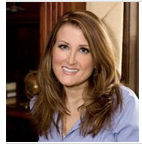Did you realize that thousands of website operators use a simple technique to generate targeted visitors to their websites without paying a dime in advertising? It's true.
In fact, the technique works so well that many of them don't want you to discover how they get those thousands of website visitors and make so many sales on virtual "auto-pilot."
Their method?
Creating tightly focused articles other people publish in their ezines (online magazines and email newsletters) and post on their websites. This method rates so powerful that some even call it "the web's best-kept traffic secret."
Now, you may ask, "Why would an ezine publisher or website owner publish my articles for their subscribers?"
The answer: Content!
Over a 100,000 ezines and newsletters operate on the web (along with millions of websites) covering everything from pets and cooking to investments and real estate. Many of them need tightly focused content and they simply can't produce all of it themselves.
Look at it this way... it's the same reason newspapers use the Associated Press. Individual newspapers often can't afford staff writers to cover every story, so they accept articles from outside their organization.
You can do the exact same thing for various ezines and websites catering to your niche audience!
You can get valuable publicity -- exposure you often couldn't even pay for if you wanted to -- by providing valuable, content-rich articles in exchange for a byline and a link to your website (called a "resource box")!
The following represent only a few of the enormous benefits of writing and distributing simple articles online:
- Attain "Expert" Status. Let's face it! In the eyes of virtually everyone who reads your articles you rank as the "expert" on the subject. Just look at people who write newspaper columns. You may disagree with their viewpoints, but they still have an elevated status in your mind compared to the "average Joe" off the street.
- Pre-sell Website Visitors. If your article appeals to a niche audience hungry for more information on a very focused subject, you actually pre-sell them better than any sales pitch. In their minds, you've already delivered content they really want so when they click over to your site you already have a "reputation" in their minds.
- Traffic Lasts Longer. Even though the Internet changes very quickly, webmasters are usually very slow to remove content from their sites. Once you get an article posted on another person's website, you have an excellent chance of that article staying there for weeks, months, even years.
- Increase Links To Your Site. In a recent search I found just a dozen of my articles posted on over 813 different websites! Not only do those postings bring me traffic, but they also help my search engine positioning because of my increased "Link Popularity."
- Builds Your Affiliate Base. Fact: Affiliates always take the path of least resistance. If you provide excellent articles they can easily post on their sites or copy and paste into their ezines, your affiliates will promote you more often and more effectively compared to those who don't give them tools. Plus, as you make more sales and publish articles, other people will see you providing excellent tools and will want to sign up as your affiliate so they can use them too!
- Build a Huge "Opt-In" Email List. You can use articles to build up a huge list of subscribers by simply compiling several articles into a series and delivering them at preset intervals. Often called a "mini-course," this technique allows you not only to prove to your subscribers that you deliver great information, but enables you to capture their name and email adress so you can send them articles and special offers in the future (with their permission).
- Requires No Special Skills. People often think they need to be a "writer" in order to publish articles, but that's not true! FACT: If you have a passion for a subject and can talk and explain things like you would to a friend over a cup of coffee, you can write articles people will love to read. So if you operate a website selling virtually any type of product or service (whether your own or as an affiliate), publishing and promoting with articles should rank high on your list of traffic generation strategies. No other method of generating targeted traffic to your website provides the quality, quantity and steadiness of traffic in such a simple, straightforward, and cost- effective manner.
Jim Edwards is a syndicated newspaper columnist and the co-author of an amazing new ebook, "Turn Words Into Traffic," that will teach you how to use free articles to quickly drive thousands of targeted visitors to your website or affiliate link!
Click here for more information--> http://hop.clickbank.net/?RWDigest/ezarticles
http://www.thenetreporter.com

























